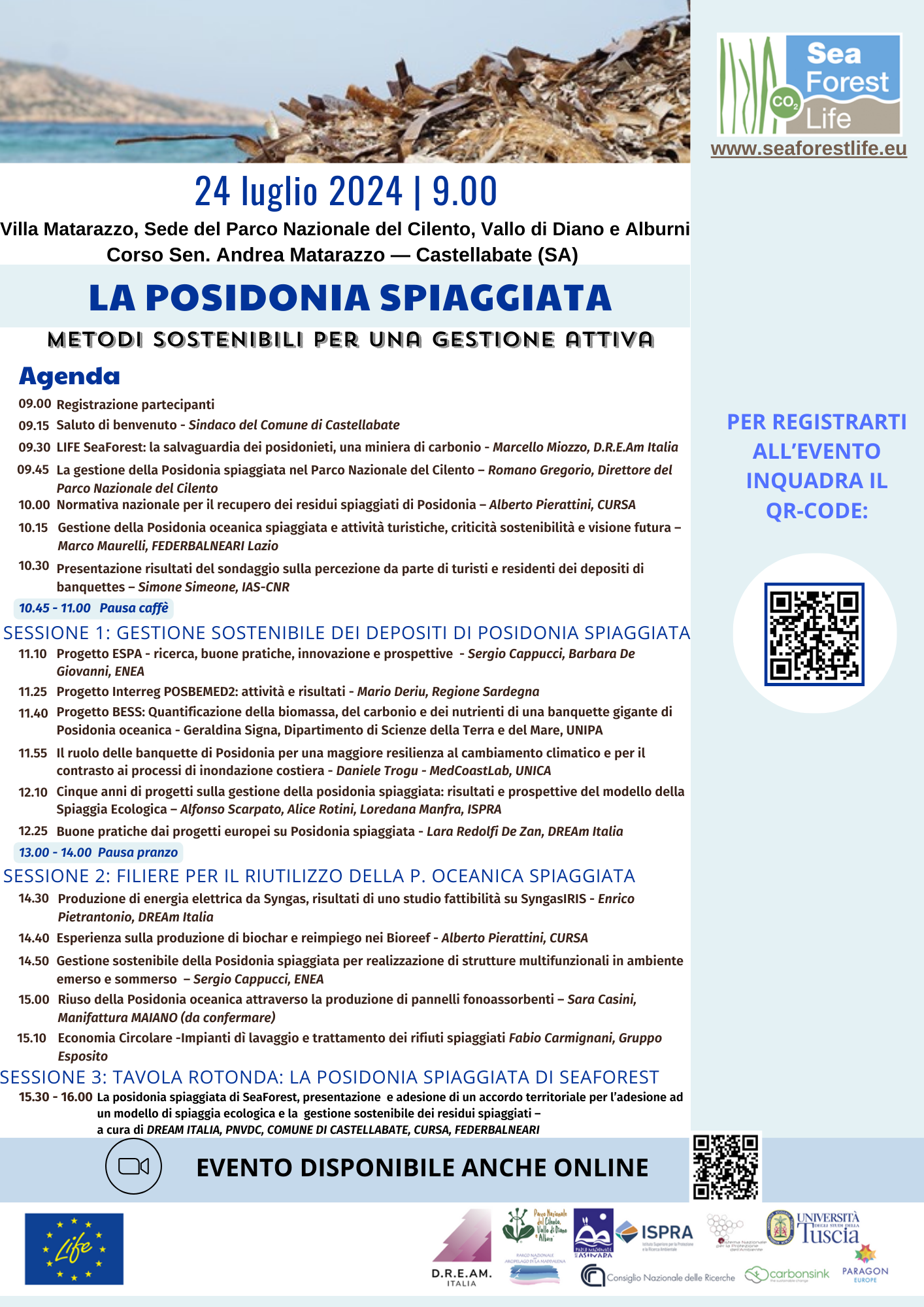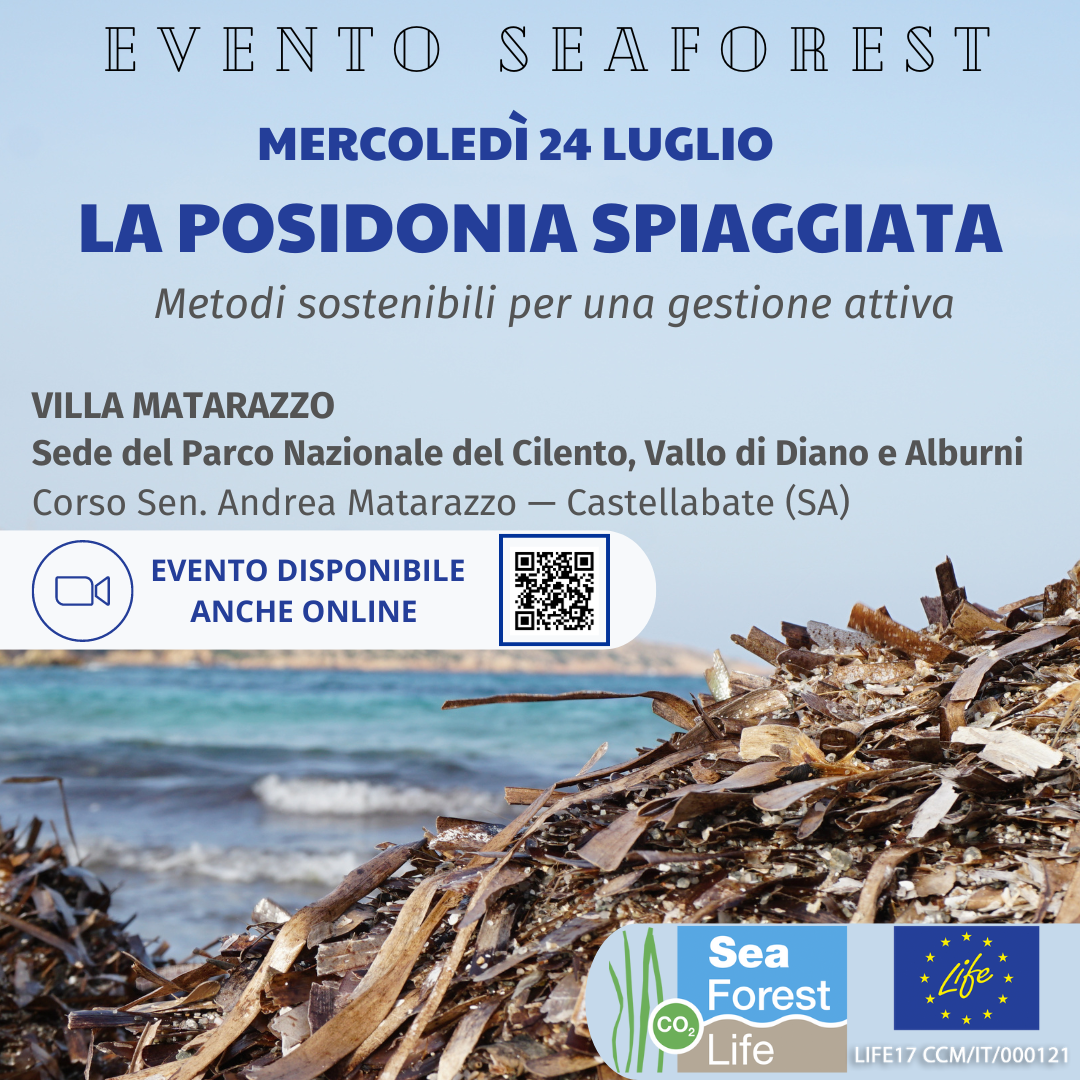A European LIFE project for the conservation of Posidonia oceanica meadows, a marine plant that plays an important role as carbon sink for the Mediterranean, significantly helping to combat climate change
Last News
Monitoring of Posidonia oceanica Meadow Mat Restorations

event program July 24, 2020

SEAFOREST EVENT, Wednesday, July 24, 2024
C.6 CREATING A LIFE SEAFOREST CARBON MARKET PORTAL
Status: not started
The LIFE SEA FOREST project aims, with the creation of the voluntary carbon credit trading market, to develop added value to be made available to local companies in the territory of each National Park involved in the Project, who want to offset the emissions made with the purchase of carbon credits. The buyers will also be able to use the SEA FOREST brand to improve their territorial reputation and insert themselves in the quality circuits promoted by the regions in which the park institution in which the carbon credits are purchased. A national IT platform will be created for the purchase and sale of the credits generated.
C.5 PRACTICES ON THE MANAGEMENT OF SEED AND SPROUTS OF POSIDONIA FOR THE HABITAT 1120* RESTORATION
Status: not started
The aim of the action is the reuse of plant reproductive material (seeds and shoots) of Posidonia beached for the thickening of the habitat 1120 *. The seeds and sprouts will then be collected, even with the help of citizens (volunteers, schools, associations) and placed in cages built specifically and positioned at sea. A natural nursery will therefore be created for the controlled germination of the Posidonia oceanica seeds collected, which, once sprouted, will be replanted in areas where the Posidonia meadows is more degraded, within the National Parks of the project.
C.4 MANAGEMENT OF BEACHED POSIDONIA RESIDUES
Status: not started
This action aims to promote sustainable management of Posidonia plant residues. The beaching of this plant is a problem along the coasts of high tourist vocation, as it interferes with the use of the beaches and causes inconvenience. Strategies will be developed to use the residues in the production of compost and in the production of sound-absorbing panels.
C.3 DEFINITION OF BEST PRACTICES FOR THE CONSERVATION OF HABITAT 1120*: MOORING OPERATIONS
Status: not started
This action has the purpose of creating mooring areas in areas where the management plan does not provide for free anchoring and in any case to protect particularly sensitive areas characterized by anthropogenic pressure generated by the use of boats in the summer season. Therefore, eco-compatible moorings will be installed, which will also be useful to remedy the recurring phenomenon of many areas within the marine protected areas involved in the project, being areas of high tourist vocation. In addition to the conservation of the Posidonia seabeds, therefore, their installation can also increase the possibility of use by boaters. In addition to these installations the mooring structures made in the past using non-standard techniques called "dead bodies" will be removed, which in addition to having lost their functionality over time, pose a threat to the 1120 * habitat.







